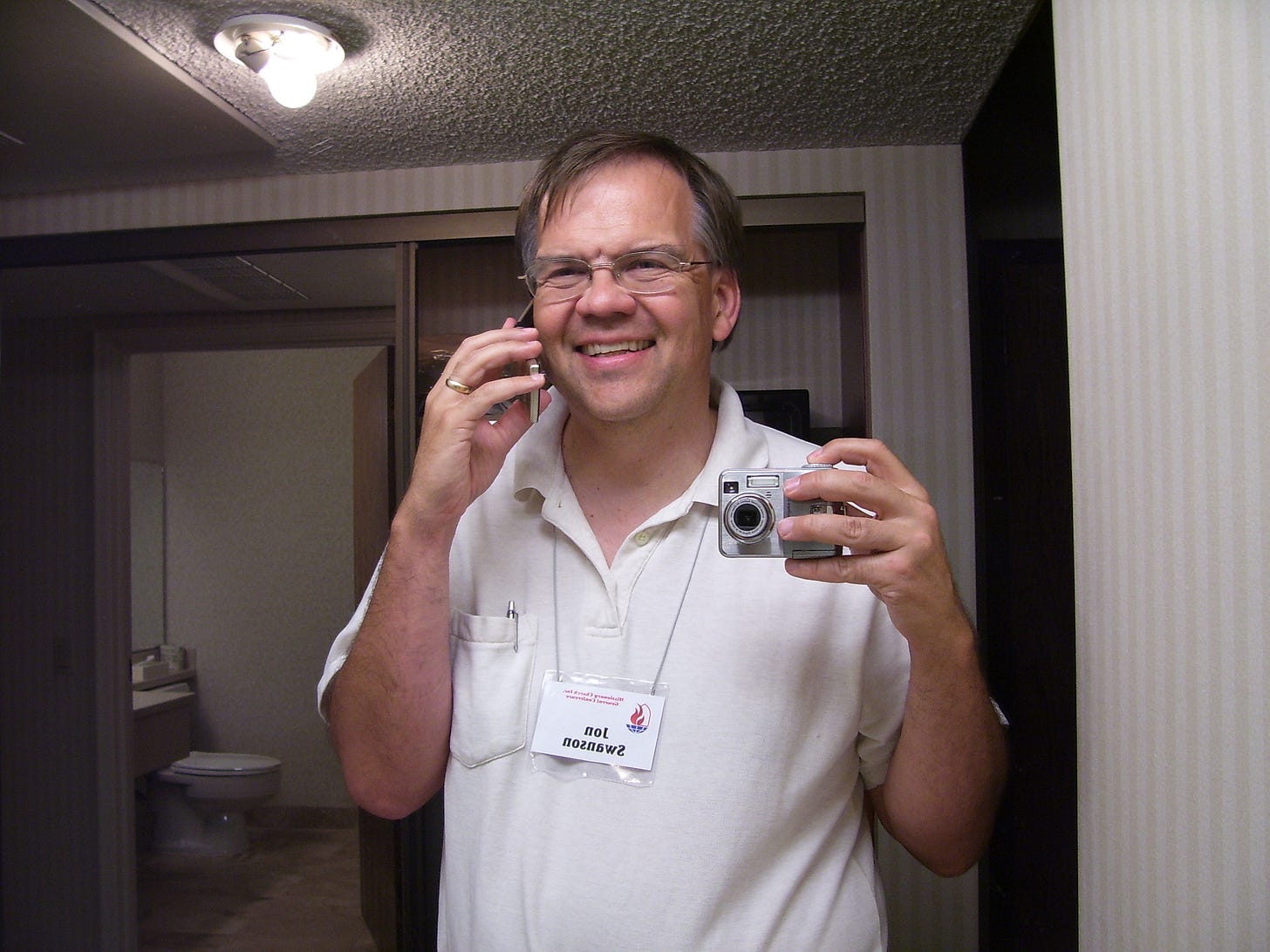Welcome back. Or welcome!
This week, a note on leaving Twitter.
(a picture from my first “social media” birthday in 2007, when I got a flurry of birthday tweets).
I've stayed on Twitter since the name changed, since several friends have left, since a variety of things have changed. I've stayed because I joined a long time ago and I have a tendency toward inertia. Toward fear of missing something. Or someone.
The other day, a friend talked about making choices about connections. The other day, I talked in chapel about making choices about what we think about (a sermon I've preached to others for a long time.) Both of those nudged me to think about reviewing what I view.
And to think about Twitter.
In 2007, I joined Twitter. I think I was in the first 1.3 million. It wasn’t about the number. It was about having a way to stay in touch with people. A very large handful of us were aware of each other. We responded conversationally to each other. My propensity for photos of coffee cups started when I took “mugshots” with an app that posted them to twitter and tagged someone (who I later met for coffee in NYC).
But I wondered how long connections would last. I'm an acquaintance of lots of people, a colleague. And I'm "friends" in the social media sense with a lot of people. But who do I stay in touch with? Who do I email occasionally? Who do I ping one way or another?
I've discovered that I do have regular contact with people I connected with via twitter in 2007. Sometimes face-to-face, sometimes by email or facebook or Instagram, sometimes all of the above. Some of us have been in each other’s homes, cities, hearts. A number of those people have died in the last sixteen years. Ed and Susan and Laurie and Connie and Liz and Steve come to mind.
But people have been leaving the platform. And I’m realizing that I need to be less entertained so I can be more engaged.
I decided to do an experiment in looking at my twitter feed. I unfollowed people from whom I can get information in other ways, and unfollowed people whose information no longer matters. The list in my feed is getting very small.
There is one person I only have ever interacted with through Twitter, whose real name I don't know. I’ve reached out to say "goodbye." And I emailed my first twitter follow the other day, just to say thank you. We connect in other ways. But there was something right about touching base.
So why talk about this in a newsletter that’s about finding words in hard times?
Because finding words includes finding the media channels for those words. Hand-written notes, texts, phone calls, tweets, Facebook posts, and books are all possible ways to convey feelings, teachings, and support. I’m committed to reflecting on the most helpful channels as well as the most helpful words.
Connections can form around convenient contact. We often use the metaphor of “water cooler conversations”, even if we don’t know what a water cooler is. And the research suggests that informal acknowledgements can help us.
We hear regularly about the comparison trap of social media. And I understand. But in the early days of social, where the emphasis was on social rather than media, those informal connections were life-giving. We saw each other’s messages at the same time each morning or evening, and we said “hi”. Like happens when we wave at a neighbor as they are walking a dog.
I miss some of those people, and I’m not driven enough to learn new platforms to find them. Saying goodbye to my twitter account feels like saying goodbye to people. And there’s a grief in that.
I’ll be fine, of course. The occupational hazard of being a communication person is that we attend perhaps too closely to the means of communication and miss out on the people side, on simply talking to people. Which is part of the reason I’m letting go of the account. And reaching out to people.
But I thought you might want to know that someone else understands that vague sense of loss of connection.
+++
As you think about this, if you do, think about reaching out to people who you remember fondly but haven’t reached out to recently. (Not the ones who annoy you. I give you permission to not aggravate yourself.)
But the ones who gave you courage, who got you through a moment (or a year), who understood when no one else did. The one whose simple wave kept you alive.
As I said earlier, hand-written notes, texts, phone calls, tweets, Facebook posts, and books are all possible ways to convey feelings, teachings, and support.
Leaving Twitter doesn’t mean leaving humanity and hospitality.
See you next week.
Jon



